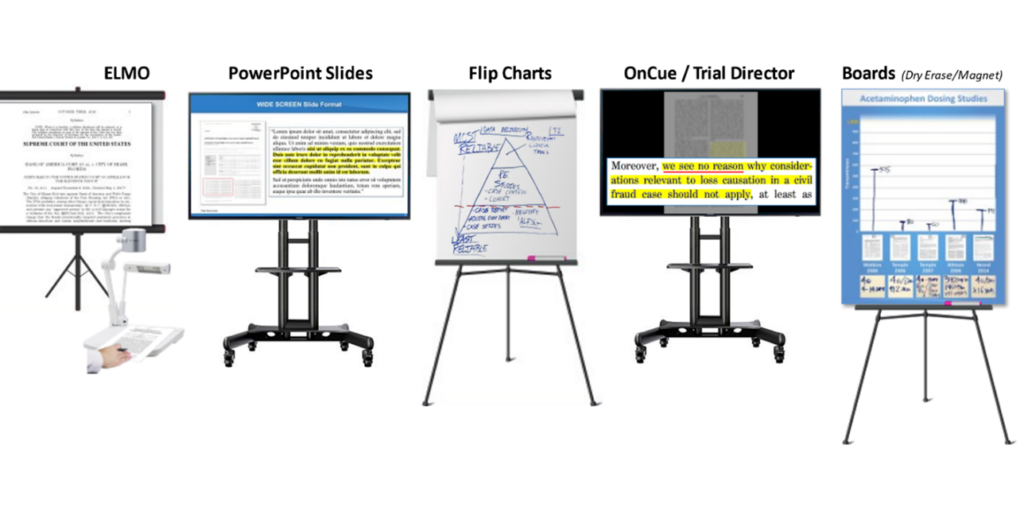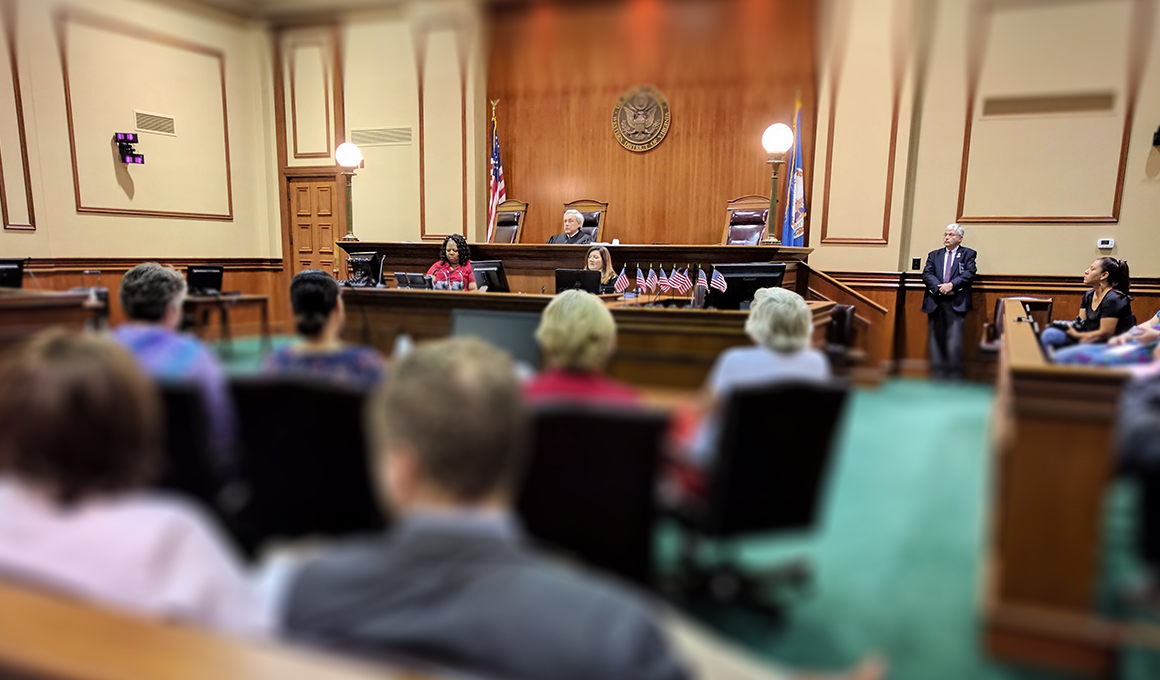Trial lawyers use custom trial presentations for compelling arguments.
Trial lawyers use custom trial presentations for compelling arguments.
Blog Article
Exactly How Test Presentations Enhance Your Disagreement and Convince Jurors
Trial discussions act as a pivotal system for improving legal debates and persuading jurors. By incorporating aesthetic aids, narrative structures, and psychological engagement, lawyers can create an engaging case that resonates on several levels. The strategic use visuals not only clears up complex info but additionally records jurors' attention much more successfully than words alone. However, the art of narration plays a similarly crucial function in changing factual evidence into a compelling story, forming jurors' perceptions - trial presentations. Understanding these elements can considerably impact trial outcomes, elevating the question of just how each part adds to this intricate dynamic.

Importance of Visual Help
Visual help play a vital function in improving the performance of trial presentations, as they can dramatically enhance target market engagement and retention of information. In the context of a trial, where jurors are tasked with processing complex info, visual help serve to simplify and make clear bottom lines. Graphes, graphs, and pictures can share data and principles that may otherwise bewilder or perplex jurors, permitting an extra straightforward understanding of the proof provided.
In addition, aesthetic aids aid in keeping juror attention throughout the process. By breaking the monotony of spoken statement, these tools can punctuate crucial disagreements, making them more remarkable. Efficient aesthetic help can likewise stimulate psychological responses, which can be essential in convincing jurors to align with the speaker's story.

Crafting Engaging Stories
A compelling story is essential in test discussions, as it serves as the foundation of reliable persuasion. It permits lawyers to weave together truths, proof, and emotional components into a systematic tale that reverberates with jurors. This narrative structure makes it possible for jurors to recognize the complexities of the situation while leading them via the lawyer's disagreement.
To craft a compelling story, attorneys must concentrate on clarity and coherence. This entails establishing a clear lead character-- commonly the customer-- and detailing their journey with the occasions in inquiry. Presenting the facts in a sensible series enhances understanding and preserves involvement. In addition, making use of brilliant descriptions can create mental pictures that assist jurors imagine the occasions, making the story extra unforgettable.
Furthermore, integrating find out here vital motifs throughout the discussion strengthens the core message and aids in retention - trial presentations. The narrative should not just convey details however additionally evoke a feeling of justice, highlighting the stakes included. Eventually, a well-constructed narrative fosters a connection in between the jurors and the instance, positioning the lawyer's disagreement as both trustworthy and engaging, thus raising the possibility of a favorable judgment

Engaging the Court Emotionally
Effective court engagement hinges on the lawyer's capability to attach with jurors on an emotional level. This connection can significantly affect jurors' perceptions and their best decision-making.
Visual help, such as photographs or videos, can even more boost emotional involvement, giving jurors with vivid depictions of the case's human aspects. Crafting a narrative that highlights the struggles and triumphs of the people involved makes certain that jurors see past the legal arguments and recognize the human repercussions of their decisions.
Additionally, tone and body language play a vital function in conveying feeling. A lawyer's passionate distribution can resonate with jurors, strengthening their emotional investment in the instance. It's vital to balance emotional charms with accurate evidence, guaranteeing that jurors feel forced to act while staying based in the fact. Inevitably, an emotionally engaged court is more probable to be persuaded, making emotional connection a crucial part of reliable trial presentations.
Structuring Your Discussion

The body of the discussion ought to be practically fractional right into bottom lines, each sustained by compelling evidence. It is valuable to utilize narration methods to weave realities into a story that jurors can conveniently follow. Visual aids, such as graphes and videos, can boost understanding and interaction, aiding to highlight vital pieces of proof.
Real-World Situation Researches
Checking out real-world case studies provides indispensable insights into the art of trial presentations and persuasion. The defense group successfully employed an approach that incorporated top-level specialist statements with multimedia presentations, try these out which mesmerized jurors and ultimately influenced their choice.
Another noteworthy example is the "McDonald's Coffee Situation," where the complainant's attorneys made use of graphic images of the injuries sustained by Stella Liebeck. trial presentations. This stark aesthetic proof played a critical role in conveying the intensity of her burns, causing a website here substantial court honor. Such situations show that impactful test presentations usually depend upon the efficient integration of visuals and narration to evoke psychological actions from jurors
Moreover, the "Casey Anthony Test" highlighted the significance of narrative comprehensibility and credibility. The prosecution's failing to develop an engaging timeline lessened their convincing power, emphasizing the requirement of a well-structured discussion. Evaluating these cases reveals that effective test presentations require critical preparation, emotional involvement, and the capacity to reverberate with jurors' worths and beliefs.
Conclusion
Trial discussions dramatically enhance arguments and persuade jurors via the strategic use of visual help, compelling stories, and psychological engagement. A well-structured presentation balances emotional charms with factual evidence, inevitably reverberating with jurors' worths.
Report this page